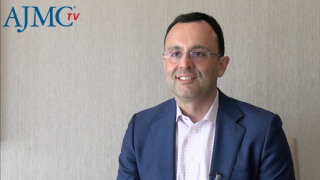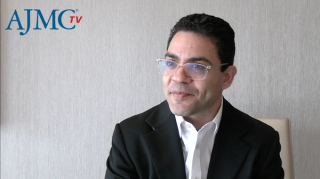
Providers
Latest News

Latest Videos

CME Content
More News

TACE combined with SBRT enhanced survival rates in patients with large hepatocellular carcinoma tumors, offering promising treatment insights.

Factors such as age, smoking status, and body mass index can help clinicians predict a patient’s risk of 30-day mortality.

Quantitative muscle ultrasound correlates strongly with ambulatory and timed function tests in Duchenne muscular dystrophy, suggesting it could complement or even replace more burdensome assessments.

Investigators found certain classes of prescriptions were also associated with outcomes, though they do not believe the association is necessarily a causal one.

A recent study suggests hemorrhagic events following essential thrombocythemia diagnosis are among the most significant predictors of early death.

Real-world data support the effectiveness of combining platinum-based chemotherapy with PD-1 inhibitors for recurrent limited-disease small cell lung cancer (SCLC), enhancing patient outcomes.

With limited treatment options and potential for admission to the intensive care unit, researchers of a new paper highlighted the importance of discussing goals and initiating palliative care early on.

A comprehensive US analysis showed that progress in multiple myeloma survival has not been shared equally, with significant disparities persisting despite improved therapies.

The efficacy of ruxolitinib cream in pediatric patients shows that nonsteroidal management of atopic dermatitis is feasible, said Lawrence Eichenfield, MD, chief of pediatric and adolescent dermatology at Rady Children's Hospital.

As we prepare for a future with more caregivers and more complex patient needs, let’s commit to valuing the care that happens outside hospitals just as much as the care within them.

Patients face increasing barriers to healthcare access as physician shortages rise and Medicare payment systems fail to support independent practices.

This article examines the prevalence of pay-for-performance incentives to promote human papillomavirus vaccination and other quality metrics as reported by frontline clinical staff.

Flatiron Health expands its international oncology research network, enhancing real-world data use to improve patient outcomes and cancer care globally.

There is a great need to streamline the process from the tissue sample to the diagnostic lab, whether it's genomic or immunohistochemistry, Robert Kratzke, MD, says.

CMS Administrator Mehmet Oz, MD, MBA, visited AtlantiCare leaders in Atlantic City, New Jersey, to discuss the need for legislative and regulatory reform, as well as the $50 billion Rural Transformation Program.

ASCO President Robin Zon, MD, FACP, FASCO, emphasizes how AI solutions and advocacy in enhancing cancer care, ensuring equitable access to innovative treatments for all patients.

Robert Kratzke, MD, urged insurance providers to prioritize fast biomarker testing in non–small cell lung cancer, saying it’s both cost-effective and life-saving.

New insights highlight clinician support for shared survivorship care and identify key factors for effective implementation.

Researchers found a 30% increased risk of cardiovascular events in patients whose diagnosis was delayed by more than a year after an elevated blood pressure reading.

Prenatal exposure to air pollution was associated with childhood obesity risk in a recent study, highlighting the urgent need for environmental health awareness.

Sotatercept-csrk was first approved in 2024 to treat pulmonary arterial hypertension (PAH) in adults based on results seen in the phase 3 STELLAR trial.

TAS-205 showed no significant impact on motor function in patients with Duchenne muscular dystrophy (DMD), highlighting the ongoing search for effective treatments for the rare condition.

The aim of the study was to not only observe the disparities exacerbated by the COVID-19 pandemic but also to draw attention to the issue to drive real, lasting change.

There are molecular testing gaps in myelodysplastic syndrome (MDS) and acute myeloid leukemia (AML) treatment, highlighting the need for improved testing and targeted therapy integration.

Artificial intelligence (AI) transforms oncology by enhancing clinical decision-making, improving patient outcomes, and shaping future health care training, as discussed by experts at Tennessee Oncology's “Tech Innovations in Community Oncology."

















